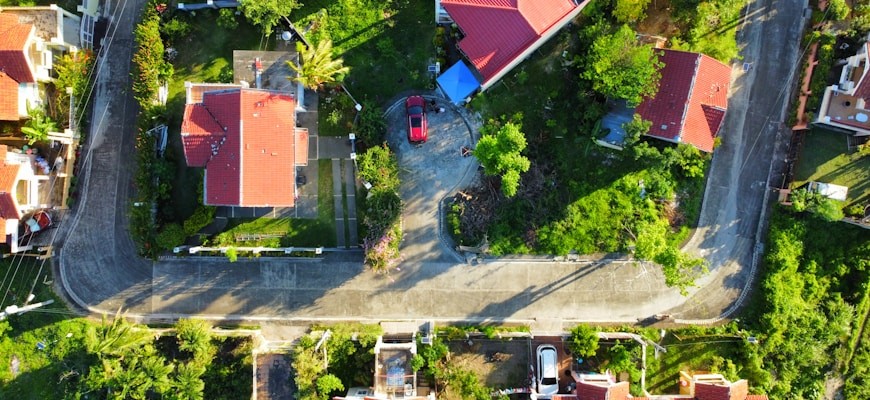- Understanding Tokenization: The Future of Real Estate Investment
- Key Benefits of Investing in Tokenized Real Estate
- How to Choose the Right Tokenized Marketplace for Your Needs
- Legal Considerations in Tokenized Real Estate Transactions
- Evaluating Risks and Rewards in the Tokenized Real Estate Market
- Step-by-Step Guide to Getting Started with Tokenized Properties
Understanding Tokenization: The Future of Real Estate Investment
Tokenization represents a revolutionary approach to real estate investment, enabling fractional ownership and enhanced liquidity in the property market. By converting real estate assets into digital tokens on a blockchain, investors can buy, sell, and trade shares in properties much like stocks. This innovative method opens up opportunities for a wider array of investors, breaking down traditional barriers to entry in the real estate sector.
One significant advantage of tokenization in real estate is the ability to lower the capital required to invest. Investors can acquire a fraction of a property rather than having to purchase an entire asset, making it accessible for more individuals. Furthermore, the use of smart contracts ensures transparency and security, reducing the risks associated with real estate transactions.
- Fractional Ownership: Investors can own a portion of a property, allowing for diversification and reduced risk.
- Increased Liquidity: Tokenized assets can be traded on various marketplaces, providing quicker access to capital.
- Global Reach: Tokenization enables investors from around the world to participate in local real estate markets.
- Transparency: Blockchain technology ensures all transactions are recorded and verifiable, enhancing trust among investors.
- Lower Fees: The automation of processes through smart contracts can significantly reduce transaction costs.
As the real estate market adapts to technological advancements, tokenization stands at the forefront of this transformation. This shift not only democratizes access to real estate investments but also aligns with the growing demand for alternative asset classes. Investors seeking to navigate tokenized real estate marketplaces must understand both the benefits and challenges associated with this new investment paradigm.
In summary, tokenization is set to reshape the future of real estate investment by offering innovative solutions that cater to the evolving needs of investors. The convergence of technology and real estate opens up new avenues for growth and diversification, making tokenized assets a compelling option for modern investors.
Key Benefits of Investing in Tokenized Real Estate
Investing in tokenized real estate presents a myriad of advantages that appeal to both seasoned investors and newcomers. Tokenization of real estate allows for fractional ownership, enabling individuals to invest in high-value properties without the need for significant capital. This democratization of real estate investment opens the market to a broader audience, allowing people to diversify their portfolios.
- Liquidity: Tokenized real estate offers increased liquidity compared to traditional real estate investments. Investors can buy and sell tokens on various platforms, making it easier to enter and exit positions.
- Lower Barriers to Entry: With tokenization, the minimum investment amounts are significantly lower, allowing more individuals to participate in the real estate market.
- Global Access: Investors can access tokenized real estate markets from anywhere in the world, breaking down geographical barriers and expanding investment opportunities.
- Transparency: Blockchain technology ensures that all transactions are recorded and immutable, providing a high level of transparency and security for investors.
- Passive Income: Tokenized real estate can generate passive income through rental yields, which can be distributed to token holders, providing a steady revenue stream.
One of the most compelling features of investing in tokenized real estate is the ability to participate in diverse property types, from residential to commercial real estate. This diversification reduces risk and enhances the potential for returns. Additionally, the use of smart contracts facilitates automated processes, further streamlining transactions and minimizing costs associated with traditional real estate investments.
As the tokenized real estate market continues to evolve, the benefits of investing in this innovative sector are becoming increasingly clear. With its potential for enhanced liquidity, reduced barriers to entry, and global access, tokenized real estate is set to reshape the future of property investment.
How to Choose the Right Tokenized Marketplace for Your Needs
Choosing the right tokenized marketplace for real estate investments is crucial for maximizing returns and ensuring a smooth transaction process. Various factors should be considered to make an informed decision.
- Platform Reputation: Investigate the marketplace’s credibility. Check reviews, user testimonials, and any available ratings to assess reliability.
- Available Properties: Evaluate the types of properties listed on the tokenized platform. Ensure that it aligns with investment goals, whether residential, commercial, or mixed-use.
- Fees and Commissions: Understand the fee structure of the marketplace. Look for transparency in commission rates and any hidden costs that may affect overall returns.
- Regulatory Compliance: Confirm that the tokenized marketplace adheres to local laws and regulations. Compliance ensures a secure investment environment and protects investor interests.
- User Interface: A user-friendly interface can enhance the overall experience. Consider ease of navigation and the availability of tools for managing investments.
- Customer Support: Reliable customer service is essential. Check the availability of support channels and the responsiveness of the team to inquiries.
- Liquidity Options: Investigate the liquidity features offered by the marketplace. A good tokenized platform should provide options for selling or trading tokens easily when needed.
Analyzing these factors will aid in selecting a tokenized marketplace that meets individual investment needs while providing a secure and efficient platform for navigating the tokenized real estate sector.
Legal Considerations in Tokenized Real Estate Transactions
The realm of tokenized real estate transactions introduces a plethora of legal considerations that investors and stakeholders must navigate. Understanding the regulatory framework is essential for ensuring compliance and minimizing potential risks associated with legal disputes. The legal landscape surrounding tokenization is still evolving, which requires constant monitoring of laws and regulations.
One of the primary legal concerns in tokenized real estate transactions is the classification of tokens. Tokens may be classified as securities or utility tokens, depending on their structure and intended use. This classification significantly impacts compliance with securities laws and regulations. Investors should seek clarity on whether the tokens represent ownership rights, shares in a company, or access to services.
- Regulatory Compliance: Ensure adherence to local and international regulations governing securities and property transactions.
- Due Diligence: Conduct thorough due diligence on the tokenized property and the issuing entity to mitigate risks.
- Smart Contracts: Verify the legal enforceability of smart contracts used in transactions, as they play a pivotal role in executing agreements.
- Tax Implications: Understand tax liabilities that may arise from token transactions, including capital gains and transaction taxes.
- Intellectual Property: Ensure that intellectual property rights related to the tokenization process are protected.
Another critical aspect involves the jurisdiction in which the tokenized real estate operates. Different regions may have varying regulations regarding ownership, transferability, and taxation of tokenized assets. Investors should consult legal professionals to navigate these complexities effectively.
In summary, engaging in tokenized real estate transactions necessitates a thorough understanding of the legal considerations at play. From regulatory compliance to jurisdictional nuances, investors must approach tokenization with a well-informed strategy to ensure successful and lawful participation in this innovative marketplace.
Evaluating Risks and Rewards in the Tokenized Real Estate Market
The tokenized real estate market presents a unique landscape filled with both opportunities and challenges. Understanding the risks and rewards associated with investing in this innovative sector is crucial for potential investors. Tokenization transforms physical properties into digital assets, enabling fractional ownership and greater accessibility.
One of the primary rewards of entering the tokenized real estate market is increased liquidity. Traditional real estate investments often involve lengthy processes for buying or selling properties, while tokenized assets can be traded on various platforms, allowing investors to enter and exit positions more swiftly. Additionally, tokenized real estate opens doors to diversification, permitting individuals to invest in multiple properties without the need for substantial capital.
- Lower Barriers to Entry: Tokenization allows investors to contribute smaller amounts, democratizing access to real estate investment.
- Global Reach: Investors can participate in markets beyond their geographical location, broadening investment opportunities.
- Transparency: Blockchain technology ensures that transactions are recorded transparently, reducing the risk of fraud.
However, engaging in the tokenized real estate market also involves significant risks. Market volatility can affect the value of tokenized properties, leading to potential losses. Regulatory uncertainty is another concern, as the legal framework surrounding tokenization is still evolving in many jurisdictions. Investors must stay informed about compliance requirements, as changes can impact asset performance.
- Market Volatility: The prices of tokenized assets can fluctuate dramatically, posing risks to investors.
- Regulatory Compliance: Navigating the legal landscape is essential; non-compliance can result in penalties or asset seizure.
- Technology Risks: Dependence on blockchain technology exposes investors to cybersecurity threats and potential platform failures.
In conclusion, the tokenized real estate market offers a blend of enticing rewards and formidable risks. Investors should conduct thorough due diligence, assessing both potential gains and pitfalls before entering this dynamic arena. Balancing the advantages of liquidity and accessibility with the uncertainties of market volatility and regulatory challenges is key to navigating the tokenized real estate landscape successfully.
Step-by-Step Guide to Getting Started with Tokenized Properties
Entering the tokenized real estate market can seem daunting, but a structured approach can simplify the process of acquiring tokenized properties. This guide outlines the essential steps to navigate the world of tokenized real estate effectively.
- Research Tokenized Properties: Begin by understanding the concept of tokenization in real estate. Tokenized properties represent fractional ownership through blockchain technology, allowing investors to buy shares in real estate assets.
- Select a Reputable Marketplace: Choose a reliable tokenized real estate platform. Look for marketplaces with strong security measures, user-friendly interfaces, and positive reviews from other investors.
- Create an Account: Register on the chosen marketplace by providing necessary personal information and verifying identity. This step is crucial for compliance with regulations in the tokenized real estate sector.
- Explore Available Tokens: Browse through the listings of tokenized properties. Pay close attention to the details of each property, including location, historical performance, and potential returns.
- Analyze Investment Opportunities: Conduct thorough due diligence on potential investments. Evaluate the financial metrics, such as expected rental income, property appreciation, and overall market trends in tokenized real estate.
- Make an Investment: Once a suitable tokenized property is identified, proceed to purchase tokens. Ensure to understand the terms of investment, including any fees associated with the transaction.
- Monitor Your Investment: After acquiring tokens, regularly monitor the performance of the tokenized properties. Staying informed about market trends and property conditions is vital to managing investments effectively.
- Engage with the Community: Participate in forums and discussions related to tokenized real estate. Engaging with other investors can provide valuable insights and help navigate challenges in the marketplace.
Following these steps will facilitate a smoother entry into the realm of tokenized properties, empowering investors to make informed decisions in the dynamic tokenized real estate market.










I was hesitant to enter the tokenized real estate market, but this guide provided me with a comprehensive understanding of how it works. It’s amazing how technology is revolutionizing the way we invest in properties!
As someone who loves blockchain technology, I found this article very informative. Can you explain more about the security measures in place for tokenized real estate transactions?
I never thought about investing in real estate through tokens until I read this guide. The potential for growth and accessibility is truly intriguing. Thank you for shedding light on this topic!